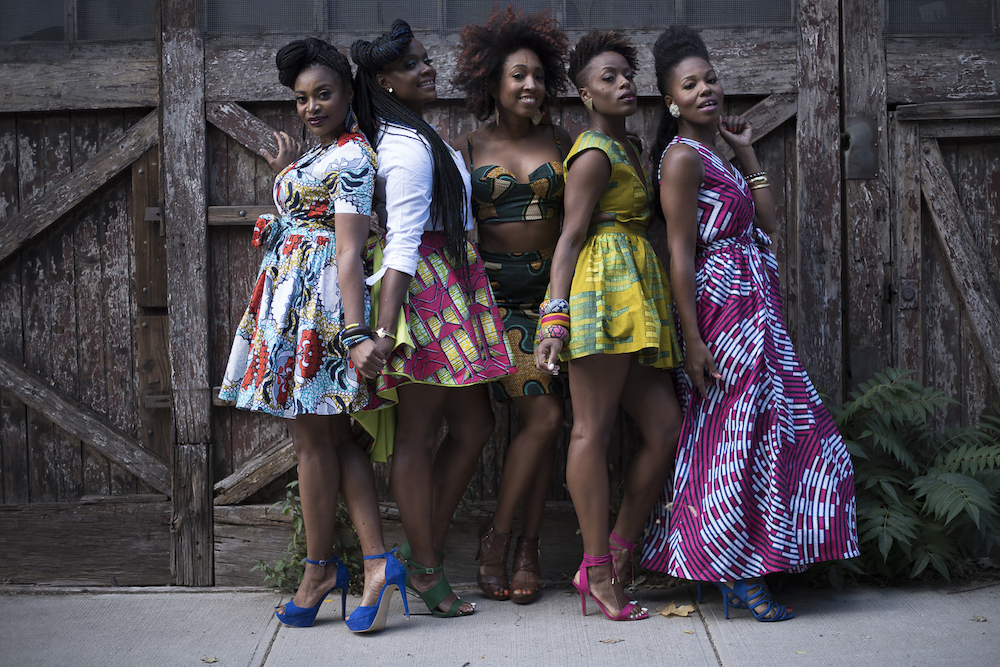At its peak last year tens of thousands of people attended the epic CURLFEST celebration, showing off natural hair patterns of every persuasion. Undeterred, the CURLFEST Beauty Summit this year is going the way of everything else in 2020 and taking its poppin’ melanin and curls into the digital space this September.
“It’s bigger than CURLFEST,” said Co-founder Tracey Coleman of the New York-based Curly Girl Collective. “We look to be a voice in the community when it comes to women’s empowerment.”
Coleman is currently stationed in South Africa, which is gripped in the middle of it’s COVID-19 peak. She said she loves hearing about young women who become unlikely entrepreneurs that inspire and dominate their industries. “I love any story where a young girl can take a situation, sometimes they’ve been discriminated against or don’t feel beautiful. They take that and turn it into something beautiful,” she said.
The Curly Girl Collective has worked to do just that by offering a platform for minority businesswomen, informing the natural hair community, and empowering women through natural hair.
The recent global resurgence of the Black Lives Matter movement in response to police brutality and George Floyd’s death prompted a wave of interest in Black-owned businesses, according to Marketplace, many of which are steeped in hair care.

“It’s important to support the smaller brands because they don’t have marketing budgets or relationships with retailers, and they need events like CURLFEST to amplify their exposure,” said Coleman, speaking to the often hot debate about Black-owned companies that ‘sellout’ to larger majority white companies.
“I think there’s room for all of them,” she said. “Brands, like Carol’s Daughter, that have been around for over a decade. In some of those cases, they see an opportunity where they can sell their brand and focus on other things that help the community. It’s tough on us to say, ‘it feels like you gave up on the community’, but sometimes they’re using that money and that sale to do other things for us.”
Coleman said a lot has changed over the years, and a lot of progress has been made both internally in the culture and externally in terms of legislation.
Commercial natural hair companies, media, social media platforms, and Black and Brown individuals were often heavily criticized for texturism, meaning they promoted a specific type of natural hair that was closer to the straight or wavy European archetype and ostracized tighter-coiled hair commonly found on darker-skinned or non biracial people, in the early 2000s.
It’s a practice of hair discrimination that’s divided many natural hair communities, said Coleman, in addition to jobs and places of employment discriminating against natural hair in general.
The Crown Act, introduced last year and supported by Congressmembers Hakeem Jeffries and Yvette D. Clarke, prohibits discrimination based on a person’s hair texture or hairstyle if that style or texture is commonly associated with a particular race or national origin.
From the first Black female millionaire, Madame C. J Walker transforming the hair care industry for better or worse to Colin Kaepernick kneeling with his infamous giant afro that was labeled ‘unpresentable’ by other Black players, natural Black, African American, Caribbean, and of African descent hair has had a long history of being politicized and discriminated against for both men and women.
“We’re covered, you’ve got your mask on, you know you’re in there for the fight,” she said about the ongoing Black Lives Matter protests uniting Black people of backgrounds. “When you’re in that setting, all these subgroups of Black culture take a backseat to the greater mission. We’re all trying to fight for the same thing.”
“Honestly, they probably see us all the same way. They don’t see the different variations of our culture. They see us as a community as a Black community,” she said, in regards to police brutality and voting. “We encourage everyone to pay attention to people running for local office.”
Coleman said if you’re looking for real change make sure you vote, and with the mail-in issues, give yourself two full weeks before any deadlines to send in ballots.
As far as CURLFEST goes, Coleman said there’ll still be music and learning experiences in the virtual version of the event this year.
Most of the magic comes from walking around soaking up the energy of being surrounded by other natural-haired beauties, she said, but they are hoping to create amazing programming and potentially a way for people to continue to connect with each other.
For more information and to stay up on all CURLFEST activities click here or follow them @ILOVECGC.






